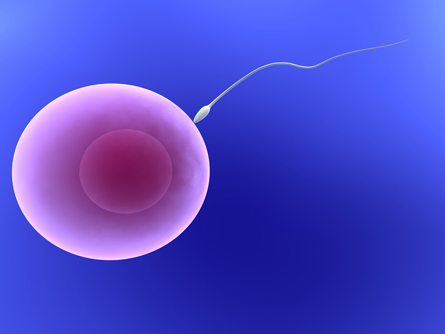Module 3
1. Module 3
1.1. Big Picture
Module 3—The Male and Female Reproductive Systems
 Big Picture
Big Picture

© Image courtesy of BigStockPhotos.com
As a young adult heading into your reproductive years, you are not often asked if you are planning to propagate your species. However, having a baby definitely contributes to the continuation of the human species by adding one more person to the population of the world.
You may, or may not, have considered whether your future will include your own children. That is a personal decision. When you do consider your future, you may be faced with questions such as the following:
- Do you want to have children? Why or why not? How many?
- At what age do you want to start your family?
-
Are there decisions or medical conditions that may impact your ability to conceive a child?
Some sexually transmitted infections and childhood illnesses can cause fertility problems later on in life. Diseases, such as the mumps, can cause infertility, but children who were immunized against the mumps will avoid this complication.
As a young adult, it is important to look into the future to see the consequences of choices you are making today. Although you cannot change the past, being informed can help you make better choices today and in the future.
If you suffer problems with fertility, this will make your personal choices about having a family more difficult. It may potentially also affect your role in the continuation of the human species.
In this module, lessons 1 to 5 focus on the male and female reproductive systems, and lessons 5 to 9 focus on reproductive hormones.
In Lessons 1 to 5 of this module you will explore the following focusing questions:
-
What are the structures and functions of the male and female reproductive systems?
-
What are the functional units of the male and female reproductive systems?
-
How are the functional egg and sperm supported and nourished through their development?
-
What genetic factors and hormones influence the formation of the gonads and reproductive organs in the male and female embryo and fetus?
-
How can sexually transmitted infections interfere with fertility and reproduction?
- How do social, cultural, environmental, ethical, and economic perspectives apply to decisions regarding the use of any scientific or technological developments related to human reproduction?
You have learned how gender is determined at conception and begins formation in the uterus. The remainder of Module 3 will examine the continuation of gender development throughout and after puberty.
In Lessons 6 to 9 you will explore the following focusing questions:
-
What are the male and female reproductive hormones?
-
How do hormones maintain homeostasis in the male and female reproductive systems?
-
What roles do male and female hormones play in regulating primary and secondary sex characteristics?
-
What are the physiological events of menstruation?
-
Which hormones dominate each phase of the menstrual cycle?
-
When does menstruation naturally begin and end?
-
What are the mechanisms of chemically based female and male birth control?
You have been introduced to the focusing questions for this module. Each lesson will restate these focusing questions to guide your study. To help you organize the concepts of this module, and to provide you with a potential aid for review, you may choose to download the Module 3 Concept Organizer. Fill in this concept organizer with the ideas you master as you work through each lesson, or prepare the organizer when you have completed Module 3. You can use keywords, point form, or any amount of detail that meets your needs. You may choose to work from the file on your computer, print the document and work from the paper copy, or copy the outline onto a large sheet of poster paper. After you have prepared your concept organizer, you may wish to check your work with the concept organizer provided in the Module Summary. The concept organizer provided outlines some of the key topics that you should include in each lesson of your concept organizer. This is a great tool to review and use for study purposes, but using this organizer is completely your choice.
In the Module Assessment for Module 3, you will complete evaluations of the reproductive systems and the hormonal control of them. In each lesson of Module 3, you will consider how that lesson’s topic could be related to fertility problems. You will complete some work towards the Module Assessment in each lesson. For more details about the Module Assessment and the evaluation criteria, visit the Module Summary and Assessment section.